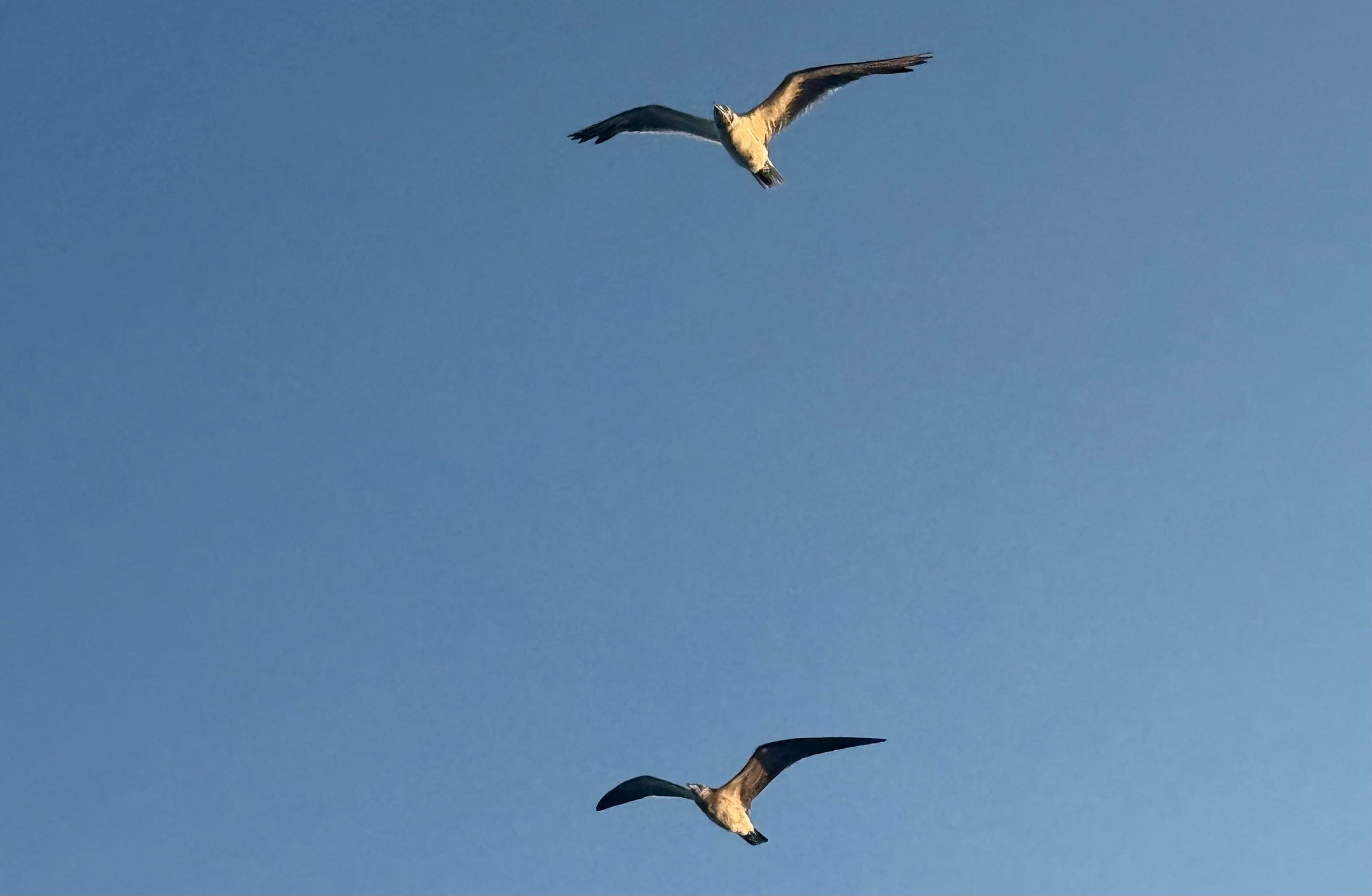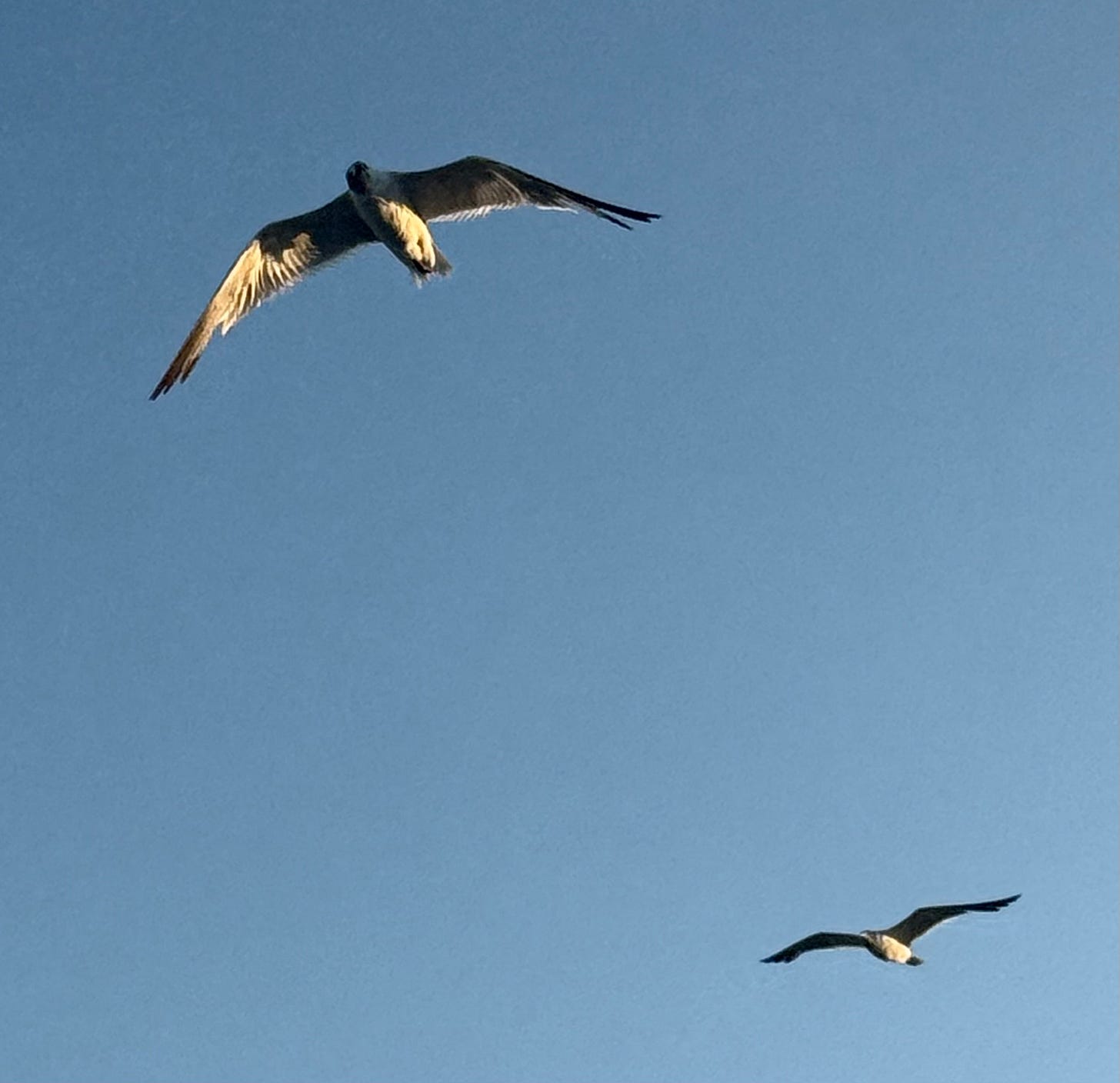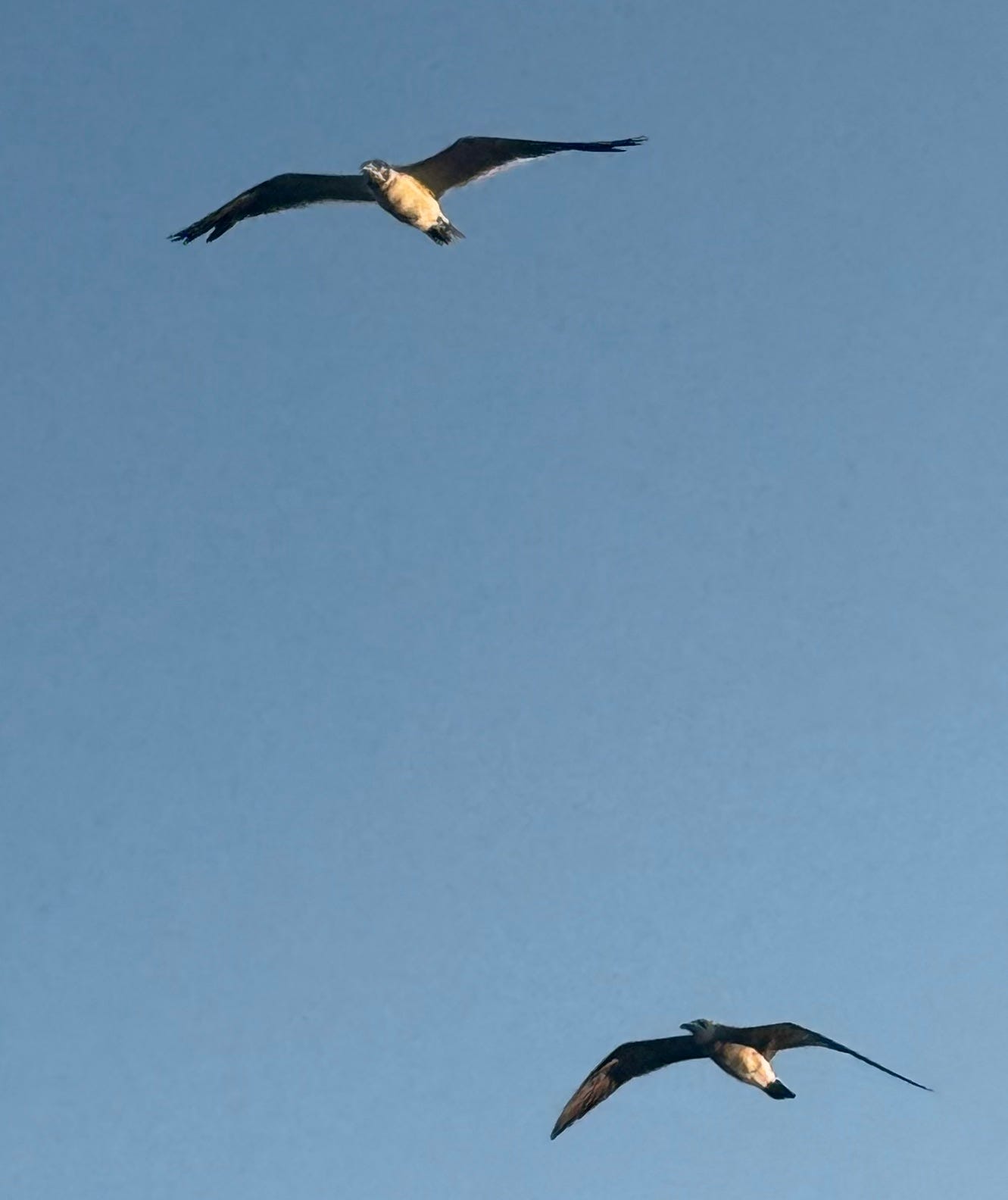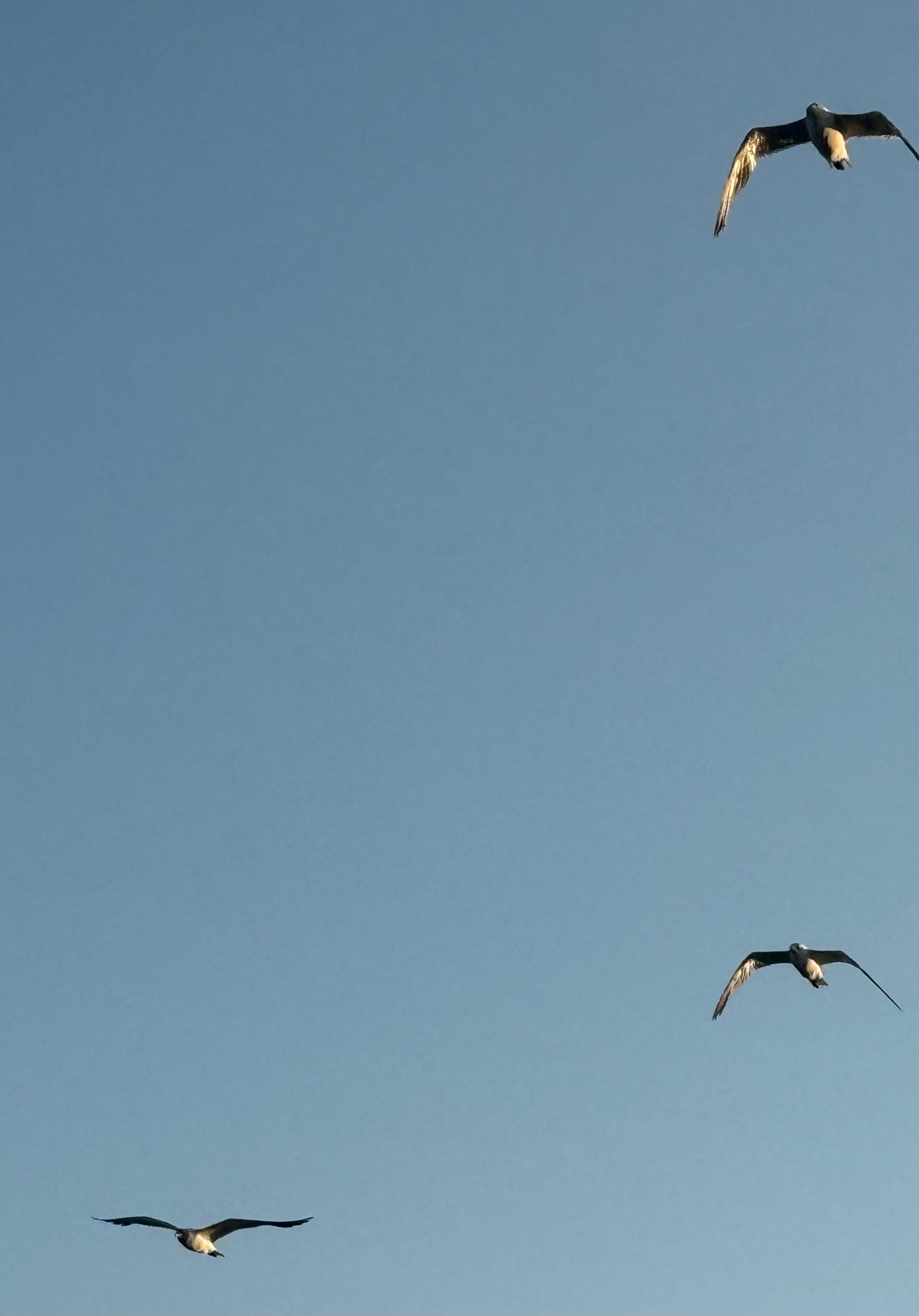Greetings, Gentle Readers!
Social Thought From the Ruins: Quixote's Dinner Party, my long term book & passion project, based upon conversations across nations, disciplines, and decades, is out!
The e-book is open access, that is, free to the reader. You can download the free digital text, or buy a paperback or a hardback book, at the link above, or at Social Thought From the Ruins on Amazon.
If you want to review the book, please send me a DM or an email at davidalbertwestbrook@gmail.com.
Sales are not particularly important to me at this stage (books are for losing money), but I really hope to be read, so please share broadly.
says to authors, if you won’t promote yourself, who will? He’s right. So a bunch of shameless promotion follows. Actually, I am ashamed. But the promotion follows nonetheless.With these images, I am doing something different from my usual “I saw this since the last Signal and thought it was beautiful or otherwise interesting and maybe you will think so too.”
Here is my university’s press release: For me, unsurprisingly, it has the slightly uncanny feel of journalism, but you’ll get the idea.
New book by UB Law professor David A. Westbrook asks ‘How do we make peace with our modernity’
The book, “Social Thought from the Ruins: Quixote’s Dinner Party,” is based on conversations among international social scientists between the 2008 financial crisis and Covid
BUFFALO, N.Y. – We are, says legal scholar David A. Westbrook, living in a transitional moment in history – a time when long-held assumptions about the world order and liberal democracy seem to be upended every day.
“Our history [seems] to have entered its autumn,” he writes. “How do we start building anew? What do we build, with what we still have?”
A new book by the University at Buffalo School of Law professor, “Social Thought from the Ruins: Quixote’s Dinner Party” (Routledge, 2025), offers a deeply reasoned and ultimately hopeful set of answers.
Westbrook holds the Louis A. Del Cotto Professorship at UB and directs the school’s New York City Program in Business and Law. He brings to his latest project insights from an international group of social scientists with whom he has been in conversation for the past two decades. Drawing on the best in interdisciplinary scholarship and thought, he proposes a way forward for both academics and policymakers.
“QDP is a long-term passion project, a collaborative effort to grapple with where we are as academics confronting the problems of the university, bureaucracy and power, and having an intellectual life today,” Westbrook says. “Maybe rethinking the humanities and critical social sciences, law included. That’s all!
“It’s very much a book about the intellectual zeitgeist, our anxieties and hopes and sensibilities, which are not entirely or even mostly rational topics. Therefore, in lieu of academic explication or argument, QDP is sort of polyphonic literary meta-scholarship, couched as a memoir of conversations among international social scientists between the financial crisis and Covid. As my interlocutor Vitor Gaspar, a senior official at the International Monetary Fund and formerly finance minister of Portugal said, ‘a book like no other.’”
Social Thought from the Ruins is built in five sections: Crises of Meaning; Curiosity; Powerful Subjects; New Buildings from Old Stones; and Hopes. Chapters address such topics as the role of curiosity inside and outside the university; the role of teaching in social change; and how it might be possible to humanize the bureaucracies that hold increasing sway over our lives.
“An extended critique of academic life today and the context of our own thinking,” Routledge says, “this book interrogates aspects of our modernity, with its pervasive sense of crisis and uncertainty, and the difficulty of thinking clearly about things like the state and power, data and violence.
“Will the critical social sciences have anything to offer the exercise of power, or are we doomed to incessant and ineffectual critique? Can bureaucracy be made at least more accountable, if not democratic? Conversely, can we feel less alienated from the structures of power that rule us, or that fail to govern at all? Can we feel at home?”
Colleagues in the wider academic community have lauded the value of the author’s critique.
“This is Westbrook at his best: sparkling insights, surprising connections, dashes of humor and thought-provoking reflections,” says Mary Ann Glendon, Learned Hand Professor of Law, emerita, at Harvard University, and a former U.S. Ambassador to the Holy See.
Adds Francisco O. Ramirez, Vida Jacks Professor of Education at Stanford University: “This fascinating book ends by inviting readers to begin again. To do what? To be engaged in imaging a second spring, no less. Via a set of erudite, quirky and controversial reflections on the erosion of meaning in key institutions, from the polity to the university, Westbrook invites readers to partake in conversations about freedom and security as well as knowledge and intellectuals.”
Starting today, and in effort to keep with Westbrook’s ambition to shift this conversation beyond the walls of the university as well as reach an international audience, Routledge is making Social Thought from the Ruins available without cost in both e-book and audiobook formats (see Routledge hyperlink above).
The standard hardcover and paperback versions are available for pre-order through Routledge (see Routledge hyperlink above) or Amazon.
"As a theater maker, and curator of spaces and people, I found Westbrook's insights and theories about constructing and deconstructing institutions useful, in the highest sense of the word."
–
, Playwright and Founder, Brooklyn Center for Theater Research“Westbrook wrote a book like no other. Provocative and original, it feels like an engaged conversation with a well-read and well-traveled friend. You will be curious, puzzled, perplexed, challenged, shaken, rattled and eager to start again.”
– Vitor Gaspar, former Minister of Finance of Portugal
“This is Westbrook at his best: sparkling insights, surprising connections, dashes of humor, and thought-provoking reflections.”
– Mary Ann Glendon, Harvard Law School, and former US Ambassador to the Holy See
“A deeply thoughtful, genre-blurring meditation on the collapse of meaning in our data-saturated age.”
–
, computer scientist and author of The Myth of AI“Westbrook is a Renaissance man, whose breadth of knowledge makes him an icon in dialogues between the law and other disciplines: anthropology, sociology, history, literature, art, economics and international relations, dialogues that wrestle with the key issues of our times. Echoing Quixote’s shift in the twilight of his life from the idealism of the bygone cavalry of the Middle Ages towards the realism of the age that Sancho Panza exemplified, Westbrook shakes the narrative to explain contemporary challenges in the search for a new spring.”
– Rosa M. Lastra, Queen Mary University of London, Law
These images were all taken on the Texas Gulf Coast over maybe ten minutes, with my phone. The sun was low in the sky, mellow gold, maybe half an hour before the evening riot of pinks, oranges, and reds. The gulls were flying over me to roost.
“The reader will be at once thrilled and puzzled, charmed and stunned, inspired and challenged—and much more. This is a book written by a serious academic like non-other I know of.”
“But what I do know is that his mastery of English and its literatures allows him to write as a poet. Poetry becomes what the poet means it to be—sometimes sad, often beautiful. It makes sense only after the reader ponders, goes back, thinks, and feels what its words captured and broadcast.”
– Charles Lemert, from the Foreword
“Returning with passion to several key themes in his past writing, Bert Westbrook, navigator of the contemporary and quixotic dinner companion extraordinaire, evokes a structure of feeling that is acutely uncomfortable for those of us caught within bureaucratic universities, persecuted by their patron state.”
– George E. Marcus, UC Irvine, co-author of Anthropology as Cultural Critique
“This fascinating book ends by inviting readers to begin again. To do what? To be engaged in imaging a second spring, no less. Via a set of erudite, quirky, and controversial reflections on the erosion of meaning in key institutions, from the polity to the university, Westbrook invites readers to partake in conversations about freedom and security as well as knowledge and intellectuals. . . . I found myself deeply engaged and so will you. Perhaps we will even dare to begin again.
– Francisco O. Ramirez, Stanford University, Education
I was thinking about how sometimes landscapes take on an abstract quality (consider any number of Chinese paintings) and I’ve done similar things with snow, or snow falling, or moonlight. And sometimes it works the other way ‘round, an abstraction evokes a landscape that isn’t there (think Helen Frankenthaler). “Abstraction” isn’t a very precise word, that is, the image is not abstracting from anything. But nobody says “suggestion,” even if that’s what non-representational paintings often do.
By a sort of analogy, I wondered about seeing gulls plastically, their images as sculptures, forms. The camera freezes the motion of the birds, and one comes to see how smooth flight comprises any number of different shapes. I thought of rendering the images in stark black and white, to emphasize form over color, but the light was so fantastic, and the different shades of white off of blue . . . I couldn’t bear to give up color for the sake of argument.
I might still do this study, color or not, I have the images, but that’s not this.
In a brilliant review essay, Korean poet, writer, and man of letters
read Quixote’s Dinner Party through the Russian philosopher and critic Mikhail Bakhtin, and a little Plato. Conversation, polyphony, and eros. I was honored and humbled.Waiting for the Homecoming Dinner Party of Meanings
Other reviews are forthcoming, I’m told. I hope they like the book. I cannot do it again, due to the brevity of life.
A free audiobook version of Social Thought From the Ruins: Quixote’s Dinner Party should be out in due course. For now, you can listen to Maguire & Westbrook, Getting Through Security: Counterterrorism, Bureaucracy, and a Sense of the Modern at WestbrookLongForm, or most anywhere you get audio. A lot of interesting stuff about the nature of the modern, arguments with Weber about the nature of the State and of bureaucratic thought, and war stories, too. The audio of Getting Through Security is also free.
Here I’m thinking about birds hanging in space. And defining, or at least delineating, space among them. And what it might mean to make the subject, or at least the center of the picture, empty. And being unable to see two, much less three, birds at once, the eye restlessly shifting from one to the other. And . . .
I did another, very different, study of gulls (with gulls? from gulls?) in the short hippy dippy film, “Blue, White, Yellow.” David A. Westbrook Photography (scroll down).
Keep it together, and safe travels.
— David A. Westbrook
Social Thought From the Ruins. Buy the book! Or just read the free version! Tell your friends! (Colleagues, enemies, and especially university administrators and HR folks.)
Kind words, reviews, ordering options are for my other books are at David A. Westbrook Books.
As always, 1000 thanks to my paid subscribers. What with people getting books for free, baby needs shoes. :)












